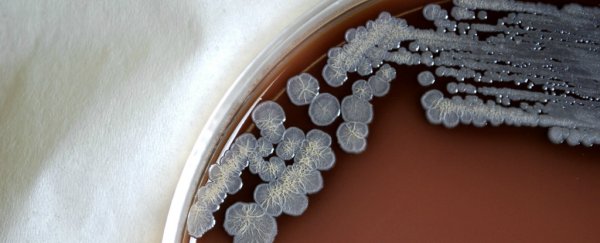Melioidosis is a disease that kills about 90,000 people a year, can cause abscess, fever and seizures, but has flown under the radar around the world.
"For everybody, it was a disease of south-eastern Asia and Australia," Eric Bertherat from the World Health Organisation told Angus Chen at NPR. "But we are discovering that this disease is present in many other regions worldwide." In some areas, the death rate can also be very high, "up to 70 percent" says Bertherat. This is especially common if not treated correctly. "It's a big burden, equivalent to rabies, and that's a severe disease."
The bacteria that causes it, Burkholderia pseudomallei, lives in soil and can either be inhaled or enter the body through cuts and breaks in the skin. It causes septicaemia, which is an overactive immune response triggered by an infection. This causes a whole body inflammation, which can lead to death if not treated.
It's also naturally resistant to a number of common antibiotics, which is why receiving the right antibiotics are so important – but many countries are not equipped to diagnose it, let alone treat it, and misdiagnosis can be deadly.
Bart Currie, a microbiologist at Menzies School of Health Research in Australia, says that because the symptoms of melioidosis are so similar to those of other bacterial infections, the disease is often missed. "This very potentially dangerous bacterium is even harder to diagnose than the standard bacterium," Currie told NPR.
To make matters worse, a new study has shown that the bacteria could be spreading further around the world than ever before. B. pseudomallei has been identified in 45 countries in the tropics, with a high likelihood of further cases appearing in another 34 tropical countries, it says.
The lead researcher, Direk Limmathurotsakul - a microbiologist with the University of Oxford and Mahidol University in Thailand - says that the numbers are unsurprising. "When I went to Indonesia, every lab we looked, we found this disease. We feel this is a minimum number… In northeast Thailand, I see two to three patients die of this during the rainy season every day."
The study, published in Nature Microbiology, says increased animal imports and the bacteria's hardy nature are the biggest causes of the spread. These bacteria are so robust, another study found that they can live in distilled water with nothing to sustain them for 16 years.
Although B. pseudomallei rarely spreads from person to person, in some areas of northeast Thailand, nearly half the population has been infected at some point, which shows just how quickly is can spread. At-risk people include those who have diabetes, kidney disease, or cancer, but healthy people can also be infected and become sick.
With correct treatment, fatalities drop to about 1 in 10, and most healthy adults will survive the infection. But this is not the case in many areas, and those who are not given correct treatment aren't as lucky. "There are many who have been treated with ineffective antibiotics for a period," says Limmathurotsakul. By the time the disease is confirmed, "most of the time, the patient has already passed away".
With increased research, knowledge of the disease is spreading, and there are some really easy ways to avoid the disease, depending on where you live. The Centre for Disease Control recommends if you live in a tropical climate, to stay inside during storms or heavy rain, and those who work with soil should wear boots and gloves. Lastly, if you're an at-risk individual, or have an open wound, avoid contact with soil and standing water.
But there is still a long way to go. "We should stop patients from getting the disease from the start. It could be done," Limmathurotsakul says. "But it's not at all in the public health campaign. People still go into rice fields without protective gear and [are] unaware they're putting themselves at risk."
